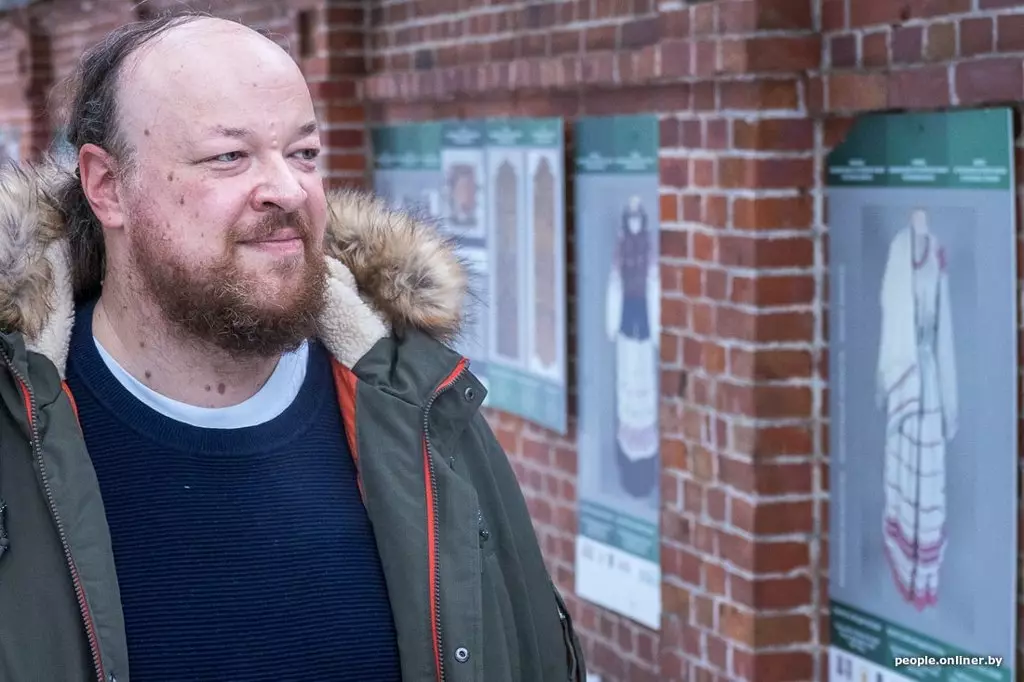


We live in the era of great change, it is difficult to say what they will lead to, but it is very important to save and then show your descendants to the causal relationship of the events. A few decades ago, hide or put the facts easier, it is almost impossible to do it in the era of the Internet. Yesterday, the chronology of "every day" started, the leading chronology of the protest events of 2020 - one of the important pages of modern Belarusian history. According to the authors of the project, everyone will be able to add their personal stories and media materials there, and the platform is invited to make the basis for the new history textbook of Belarus.
Talked with a historian, a teacher of the Center for the Public History of the European College of Liberal Arts in Belarus, Alexey Rabotnikin about how modern national narrative is being formed and can technology help make a new history textbook of Belarus fascinating.
About smart textbooks of the future
- What is the textbook of the history of Belarus now and how can it transform?
- Textbooks of the history of Belarus starting from the 1990s repeatedly repeatedly, they introduced the "official" national narrative. A number of topics are subject to political censorship and control.
Already, textbooks in other countries are integrated with a digital environment. First, there are resources that complement the content of the textbooks (online access to video, photo, to "primary sources", archives). Secondly, the versions of textbooks for mobile devices are gradually being created. Thirdly, textbooks are published immediately for online, with hyperlinks in the text, etc.
Tutorials and in Belarus are changing. They become more visual material, the layout is gradually transformed, in this sense, the book becomes more user friendly.
But there are questions of filling and adapting textbooks for a digital environment: who can influence their content, is there any public discussions about this and, if the state is financially supported by the publication of textbooks, should this be accompanied by censorship?
As for future textbooks, it is important to present the history of everyday life, and not only the personality of politicians and leaders, the story of both the institutions of government and the whole society, its different groups. There must be many techniques forming a critical attitude to the occurring, the ability to see problems and discuss about them.
- What should the interactive history textbook be interested in modern schoolchildren?
- Digital and interactive history textbook at least should not be boring. And we are not talking about historical curiosions or jokes. Such a book should offer you an intellectual adventure, a kind of journey, the path from the lack of ideas about something to their formation and the possibility of interpretations. This textbook may be copyright - we must understand who author or authors, what their views and values are why this tutorial is written.
It found a compromise between the presentation of concepts and interpretations of a theoretical nature, on the one hand, and a story about private stories included in the greater story. Each personal story must be filed as a history of society.
Must be shown both political strategies of different periods and the response to them of people, the influence of a person on history, that is, a combination of macro and microforetia is to be created. A lot of visual material and its analysis are welcomed. In the textbook of a new type you need to express not only the story, but also how and why it is written.
The textbook is integrated into a digital environment, it has references to materials on different resources.
Perhaps this textbook will include the elements of Chat Bota (communications with different witnesses of events, known personalities), he must help look for information that will expand the knowledge that there is a stated. And this textbook should not impose any single version of events, it should discuss issues of why in society choose a certain interpretation of the past.
In the textbook, it is necessary to talk about how we can influence political life together, but to submit their interests in politics and other areas, manage conflicts. About the role of a small person in our common story
- What is the role of private stories in the overall picture of what is happening?
- Even in the early 1990s, when the reform of historical education in Belarus began, ideas were expressed about how important adhere to the anthropological approach and tell about a person in history. But from the life of witnesses (eyewitnesses) of historical events interrupts the process of broadcasting generation experience, and we forget important things. Today, many people think about how, for example, to represent the dramatic events of the twentieth century, if you contact contemporaries of that era there is no possibility.
Since the 2000s, a lot of "oral history" began to pay great attention to the "oral history", fixing the private stories of those who survived the second world war, collectivization, Stalinism, suffered from the consequences of a catastrophe for the Chernivism, etc. These private stories are recorded, analyzed and are One way to reconstruct the experience of direct experiences of historical events. There are projects that record the experience of experiencing political events of 2020.
- Are such details in the context of the textbook?
- Private stories are important because it is the experience of representatives of different social groups with unequal income and status, with their values and views. These stories make a common story not one-dimensional: On the one hand, we may want to create a narrative about the struggle for democracy, on the other - through private stories, we receive different versions of what is happening and begin the debate on how democracy should be in Belarus.
And through these stories, we open for themselves what we are: where does violence come from how we react to it, what we are ready, and what are not ready to go. In the future, in our textbooks, I would like to see excerpts from an interview about different periods of history: These are important evidence. Another thing is how now the direct participants and event participants can tell about what is happening, especially if it was the experience of violence. Such a story can lead to the retavaticization of a person, you need a joint work of historians and psychologists.
About why the National Narrative is important
- The story is easily becoming a propaganda tool. Is it possible to avoid this and how?
- Indeed, history is often used to political mobilization of society. To reduce the effect of one or another manipulative argument, education is necessary and the habit of thinking critically. You need access to alternative sources of information and skill with them. It is also necessary to consider manipulations as part of a systemic process, to understand the general context (but not to get involved in conspiracy).
- What role can technology play in this?
- Technologies themselves are just a tool. But thanks to their development today, we have the opportunity to see competing historical narratives. Some time ago a number of digital projects appeared offering a different look at our story:
The platform showing the Jewish heritage in Belarus, and others.
Technologies provide instant access to this or that information, although there is always a question of its balance and compliance with the criteria for analyzing historical information.
For example, many most often look at Wikipedia, which is an example of crowdsourcing knowledge (everyone contributes to the general case). Many Wikipedia authors are not historians, the border between the ordinary and expert knowledge is blurred in it, although there are some mechanisms that support the search for conditional truth, for example, many can participate in the editor of the articles and argue about the content.
- Is it possible to a critical look at the events that occur right now?
- Yes, this look is possible, and there are already quite a lot of publications (in Belarus and abroad), in which one or another interpretation of today's events is offered. What argue? Are the events of 2020 "revolution", including "postcolonional", how much in the events there is a feminist agenda, what is the sociological picture of the protests, as in the protest movement, references to the history and state propaganda are used, can we explain state violence with the experience of experience Stalinism can, when analyzing, the experience of protests of the previous years, as happened, what we have today (from where authoritarianism arose), etc.
- Today you can often hear that Belarusians are strengthened in protests as a nation. What is such a national narrative?
- This is a story about the past community or nation, which has its heroes and their opposite, their important events. This is a kind of myth of the foundation of the nation, national identity, its own uniqueness, etc.
Initially, the main task of national narrative was the confirmation of the right of nation on self-determination and independence, the right to the existence of national states. After his appearance in the XIX century, the national narrative was often the history of national suffering and struggle.
- How is the national narrative form today?
- In the XXI century, many criticize the traditional forms of national narrative. Today, it includes the stories of different social groups, which was almost not mentioned before.
In modern narrative, there was more critical reflection and fewer stereotypes about themselves. The national narrative is gradually turning from the form of self-loss and displacing the shadow sides of the history of the nation in the form of a discussion about the past community.
This process is dynamic: it is often a political struggle for how there should be a national narrative, which should be included in it, and what to exclude from it, as far as we as a community can be critical to yourself.
Our channel in Telegram. Join now!
Is there something to tell? Write to our Telegram Bot. It is anonymously and fast
Reprinting text and photos Onliner without resolving the editors is prohibited. [email protected].
